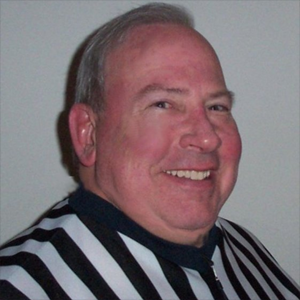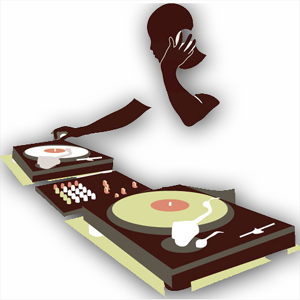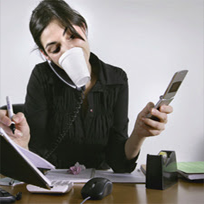
Rndballref
20 Years Experience
Chicago, IL
Male, 60
For twenty years I officiated high school, AAU and park district basketball games, retiring recently. For a few officiating is the focus of their occupation, while for most working as an umpire or basketball referee is an avocation. I started ref'ing to earn beer money during college, but it became a great way to stay connected to the best sports game in the universe. As a spinoff, I wrote a sports-thriller novel loosely based on my referee experiences titled, Advantage Disadvantage
from the NFHS rulebook, " A player is in control of the ball when he/she is holding or dribbling a live ball inbounds". There are a few exceptions such as a jumper on a jump ball obtaining the ball before it touches the floor or a non-jumper.
Notice it does not exclude jumping in the air nor does it require 2 hands on the ball.
Sounds like a bad call. The center for Team A does not establish team possession by tipping the ball, but by knocking the ball out Team B gets the ball. Because neither team had possession and B got the first ball the arrow is set for Team A's possession on the next one.
Technically all players have to be beckoned in by a referee. As a matter of practice, I would not call the T unless the player's entry gave them a distinct advantage such as an undefended fast break.
yes.
Bar Mitzvah DJ
 What's the craziest thing you've seen at a bar mitzvah?
What's the craziest thing you've seen at a bar mitzvah?
Sommelier
 What's your favorite bottle of wine for under $20?
What's your favorite bottle of wine for under $20?
Hollywood Executive Assistant
 Are Hollywood execs as nightmarish as depicted on TV?
Are Hollywood execs as nightmarish as depicted on TV?
The ball is still inbounds, unless the player who is out of bounds touches the ball. So, in your question, assuming the out of bounds player is not touching the ball ... PLAY ON!
I can honestly say I have never noticed that.
I agree that it is unfair to the lower levels that they get new refs learning the craft or old burned out refs just collecting a check, sub-par coaches who are just learning to coach, and parents who are learning to appropriately advocate and cheer for their kids.
I have always said this: we should pair varsity-capable refs with young, new refs to work and learn the craft in freshman games. Assignment chairman would say that the purpose of summer camps where refs work high school summer leagues is to train new refs and sift out untrainable officials. So if you think the officiating is spotty during lower level season play just wait until your kid plays in summer leagues officiated by training camp referees. Good luck and know that the quality of the players, coaches, officials and parents will improve as your daughter progresses.
-OR-
 Login with Facebook
Login with Facebook (max 20 characters - letters, numbers, and underscores only. Note that your username is private, and you have the option to choose an alias when asking questions or hosting a Q&A.)
(A valid e-mail address is required. Your e-mail will not be shared with anyone.)
(min 5 characters)
By checking this box, you acknowledge that you have read and agree to Jobstr.com’s Terms and Privacy Policy.
-OR-
 Register with Facebook
Register with Facebook(Don't worry: you'll be able to choose an alias when asking questions or hosting a Q&A.)